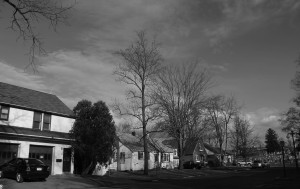Christina Oddo
News Editor
“Phage Hunters” identify the genetic codes of viruses.
“Phage Hunters,” taught by
Through this class, students learn more about new fields of biology, including bioinformatics and genomics. These fields bring together the studies of both computer science and biology; students even gain experience using high-tech bioinformatic computer programs.
In this course, the analyzing of genome sequences is accomplished by the isolation of the phage from its environment. A phage, or bacteriophage, is a virus that infects bacteria. This course allows students to explore molecular biology through this isolation.
Pizzorno described how the students use soil samples to isolate the phage that infects a nonpathogenic mycobacterium. This nonpathogenic bacterium is distantly related to a type of bacteria that causes
“Each student’s virus is unique and they get to name them and enter the information about their phage into a national database,” Pizzorno said. “Each student then characterizes their virus with transmission electron microscopy and DNA analysis. Over winter break we have the genome of one or more of the class’ phage sequenced. In the spring semester, the students learn to use computer programs to decide where all of the protein coding sequences in the phage genome are located. This is called annotating a genome. The final genome sequence and the class’ annotation are then submitted to Genbank and become a resource for other scientists to use.”
“It was amazing isolating my own virus and naming it (my phage’s name is Whim),” Katie Wimmer ’15 said. “It was also so interesting figuring out how the simple base pairs (As, Ts, Gs and Cs) turn into proteins.”
The Howard Hughes Medical Institute (HHMI) awarded the University a Science Education Alliance (SEA) grant, resulting in this new opportunity for sophomore research.
“Dr. Emily Stowe and myself received funding from the Howard Hughes Medical Institute to start the courses and run them for a minimum of three years,” Pizzorno said. “This is our last year of funding, but we will keep the courses going with supplies from the biology department and funding from the Provost’s office for DNA sequencing.”
As part of “Phage Hunters,” students work on individual research projects with the help and mentorship of two faculty members.
“One of my favorite things is how although there is some guiding by the professors, the students get lots of leeway in deciding how they are going to carry out their experiments,” Ben Goodwin ’15 said. “It’s a great way to develop skills that I don’t believe are taught in any other class on campus. It’s also nice how the class parallels what we’re doing in our other bio[logy] classes because it gives us a chance to apply what we’ve learned and it makes it much more interesting.”
Further, through the course, the chances that students will be able to isolate a never-before-studied phage are likely.
“Professor Pizzorno and Professor Stowe-Evans never know just what kind of phage a student might get, but they are there to help us sort through our ideas until we come to a conclusion that we are confident in and have evidence to support,” Alexis Galaini ’15 said. “This makes the course challenging and frustrating at times but in the long run will benefit us when we engage in higher-level research here at Bucknell and beyond in our professional careers.”
There is even a potential for students to contribute to renowned journal publications by the end of their sophomore year, as well as to attend regional SEA/HHMI seminars and conduct summer research at another SEA institute. Students who participate in “Phage Hunters” have great potential to advance their research as part of a national network of scientists and researchers. Students therefore have the ability to contribute to phage genomics as a whole.
“’Phage Hunters has been a great opportunity to get hands-on experience in a laboratory setting using techniques that are relevant to a number of professional career paths,” Brian Vassallo ’15 said. “Such opportunities are relatively rare in the undergraduate world and it’s been a wonderful learning experience that has definitely helped shape my plans for after college. The laboratory work has not always been easy or successful, but this is exactly what working in a true lab feels like.”
“As a bio[logy] major, ‘Phage Hunters’ part I (taken first semester sophomore year) really improved my wet-lab skills,” Galaini said. “This is the part of the class where we actually isolate and purify a large quantity (high titer) of phage from our individual soil samples. ‘Phage Hunters’ part II improved my analytical, computer and critical-thinking skills. This second part of the class focuses on using the computer to analyze and annotate characteristics of the phages sequenced genome. These skills were honed in a class setting, but with research in mind, so we were not told every step of the way what to do; part of this class is to see for yourself what works best/what is going on.”
“We started with 12 students in the first year, 14 last year and enrolled our maximum class this year of 16 students,” Pizzorno said. “We are currently taking applications for next year’s class.”
To apply, interested students are encouraged to visit the “Phage Hunters” site on the University web page. The successes and contributions of the students of “Phage Hunters” are ample and will continue to expand in the future.
“The point of these courses is to give students an authentic research experience in the context of a class,” Pizzorno said. “All of the viruses we discover are novel and may be used by other scientists one day. The students in the class are contributing real science knowledge to the larger community. In addition, they are learning how to analyze data, critically think about their work and explore new topics.”

